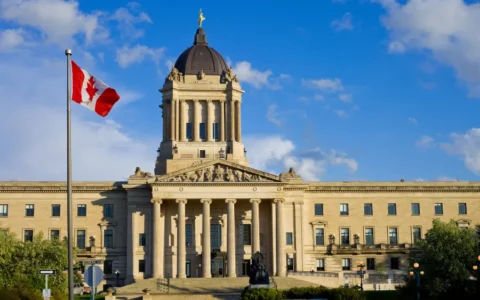For many globally minded families, a second residency or citizenship isn’t just about fiscal advantages or travel, it’s a life strategy. Beyond financial efficiency or global mobility, it serves as an insurance policy: a secure fallback for moments when stability and normalcy suddenly flicker. Whether to safeguard children’s education, access dependable healthcare, or simply have a sanctuary in an uncertain world, the conversation is shifting and demand is soaring.
Recent data underscores this: over 50% of high-net-worth U.S. families enquiring about second citizenship in 2024 cited safety, social stability, or quality-of-life improvements as primary motivators. As geopolitical risks, health challenges, and climate threats escalate, so does the value investors place on having a reliable “Plan B.”
1. A Stable Life When One Door Closes
Safety as Everyday Insurance
Second citizenship offers more than chances to travel, it’s an anchor in turbulent times. During sudden political unrest or public health emergencies, the ability to relocate legally and quickly can be life-saving. Programs like Antigua & Barbuda’s CBI, Portugal’s Golden Visa, and Greece’s residency route have enabled thousands to secure a safe haven during global disruptions like COVID-19.
Education, Healthcare & Quality-of-Life
Citizenship or residency in higher-income countries often grants access to top-tier healthcare systems and robust public education, luxuries in many of today’s fast-changing societies. In 2024 & 2025, increased applications from U.S. families cited these as critical benefits. For parents, a second passport means their children will have more choices and a safer future.
Economy as Emotional Security
Dual citizenship often establishes emotional as well as legal security. It’s a psychological anchor: a sense of belonging to multiple supportive communities. This soft side knowing your identity isn’t tied to just one nation is now shaping investor decisions.
2. Not Just Mobility But Continuity
A Safety Net for Disasters & Climate Alerts
With extreme weather events and climate threats on the rise, families are investing in greener pastures and safer climates. While some programs aren’t explicitly pitched as climate insurance, they effectively function as one offering legal footholds in low-risk regions.
Protecting Wealth and Legacy
In authoritarian regimes or unstable nations, wealth can be frozen overnight, assets seized, or businesses nationalized. Dual passports provide access to alternate jurisdictions, banking, legal systems, and regulatory frameworks unfettered by domestic volatility—preserving legacy and prosperity outside any single country’s reach.
3. Diversification Is No Longer Just Financial—It’s Personal
Traditionally, diversification was a concept reserved for investment portfolios. But today’s globally mobile individuals are applying the same principle to life itself. By acquiring residency or citizenship across multiple jurisdictions, families reduce exposure to political risk, legal uncertainty, and sudden regulatory shifts. It’s no longer just about how your money is protected but also where you and your family are protected.
Building Legal and Lifestyle Redundancy
Second citizenship and permanent residency create legal redundancy. If one country’s system becomes unstable, whether due to authoritarian politics, capital controls, or civil unrest, having an alternative jurisdiction ensures you can pivot without panic. From healthcare access and banking to real estate and education, this redundancy creates a powerful lifestyle safety net.
Strategic Jurisdiction Pairing for Different Needs
Different countries serve different strategic purposes. The UAE might offer business agility and tax efficiency, while Portugal provides lifestyle perks and EU access. Caribbean nations offer speed and affordability for citizenship, whereas Singapore is prized for its financial ecosystem. Forward-thinking investors are blending programs to balance speed, security, access, and long-term optionality.
Future-Proofing Family and Legacy Planning
A multi-jurisdictional structure doesn’t just benefit the present, it builds long-term continuity. Children can study in better schools, parents can receive care in better hospitals, and families can pass on assets with more legal protections. By diversifying citizenship and residency, families make sure their legacy is insulated from single-country disruptions and that their options stay open across generations.
4. The Emotional & Psychological Edge
Building a Real “Home, Anywhere”
Global investors increasingly prioritize being “rooted but mobile.” Their second residency isn’t just a place, it’s tangible. Real estate, community connections, and even children’s friendships matter. It transforms citizenship from a legal document into an emotional reserve, a place where one is seen and supported.
Peace-of-Mind in an Uncertain World
Knowing there’s an alternative, a real functioning home beyond your front door brings comfort in unpredictable times. It may never be needed, but for those who hold it, it changes the conversation: from risks to reassurance. That quiet confidence is what many cite as the core motivator.
5. A Thought-Leader’s View: The Industry’s Evolving Conversation
Reframing the Offer as Life Security
Advisory firms and law practices are now presenting second citizenship not as a tax benefit, but as comprehensive life security. Marketing is shifting from talk of passports and visas to themes of education, healthcare, freedom, and legacy.
Policy Innovation Reflecting Client Priorities
Countries like Australia, Canada, and New Zealand are working on residency programs emphasizing continuity—family integration, professional alignment, community connection—not just checklists. Multijurisdictional advisors are framing their services accordingly: “lifestyle resilience” and “family continuity” are becoming core USPs.
Citizenship as a Life Strategy, Not a Silo
Dual residency or citizenship isn’t a luxury any longer. It’s a multi-dimensional life plan, a carefully built fortress for your family’s future. Investors today don’t just value mobility, they value continuity. Real communities. Real peace of mind.
In this era of global flux, citizenship becomes insurance: a legal, emotional, and practical backup, not just a path on a map. As advisors, governments, and planners, we should position these programs as what they’ve truly become: foundations for resilience, freedom, and family security.






